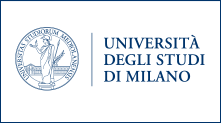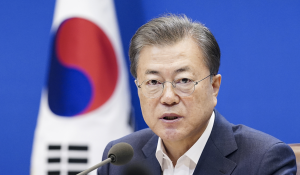
Are dictatorial regimes better than democracies in facing a pandemic crisis? This one of the questions that people in the Western countries are asking themselves, considering how governments around the world are managing the coronavirus spread through different contingency measures. China decided to isolate cities and entire regions: the government could count on its authoritarian power to forbid citizens to go out and to impose strict rules. However, even democracies are able to protect the public health, when they take advantage of their strengths. Education, transparency and mobilizing civil society: the South Korean case shows that these three tools can be useful in fighting against the spread of coronavirus.
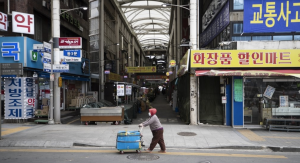
Seomun Market in Daegu, one of the most coronavirus-affected area in South Korea [Yonhap News Agency]
The social distancing – First of all, during this fight against the coronavirus, the emergency situation has always been communicated with transparency and managed through the education of citizens. The emphasis on social distancing is very strong and South Koreans are showing a great sense of responsibility in following the recommendations concerning crowded places to avoid. All information is continuously communicated through press conferences and extremely detailed releases: the government is firmly convinced that the complete and transparent information reassures citizens and makes them more cooperative, while the lack of information generates confusion and distrust. Through this attitude, even big companies are collaborating with all their possibilities in fighting against the coronavirus, as the case of soju maker’s shows.
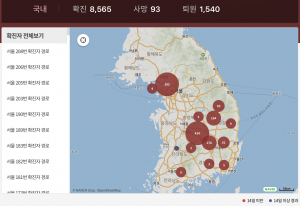
The live map shows the location of coronavirus cases on the national soil
Apps against the virus – Since the first days of the coronavirus outbreak, the Korean Center for Disease Control (KCDC) has been organizing a great system of geo-localized information for the tracking of the infected people. Potentially infected South Koreans and travelers entering the country are asked to download an app to voluntarily report any symptoms and their position every day: this GPS tracking system is connected to a live map of their locations – which doesn’t show their names – and it can be checked by anyone who wish to avoid them. Moreover, the healthcare authorities immediately test whoever is potentially infected: through this app, they can know what the patient did in the previous two weeks, in order to sanitize everywhere he went and to test all the people he got in touch with.
How to build a diagnostic kit in 3 weeks – On January 16, Chun Jong-yoon, the founder of molecular diagnostic company Seegene, decided to start focusing on coronavirus: «Nobody asked us, but we were a molecular diagnostic company, so we had to prepare in advance», he said. The team of Seegene was able to create a Covid-19 diagnostic kit in just three weeks. On February 5, the South Korean health authorities approved the process and the country could rapidly expand testing, the most effective weapon against the virus.
Currently, Seegene receives orders for more than 10 thousand kits each week: considering that 100 tests can be diagnosed with a single kit, around 1 million tests are produced weekly. According to CNN, «while some nations have struggled to get enough test kits to diagnose suspected patients, South Korea has provided free and easy access to testing for anyone who a doctor deems needs it». The KCDC has been able to test 15/20 thousand people a day, an amount of 230 thousand since the beginning of February. This is one of the reasons for the relatively large number of patients until March 9, and, at the same time, the low mortality rate in South Korea.
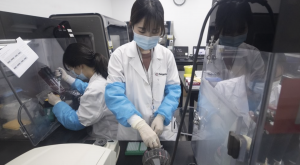
Staff at Seegene’s headquarters in Seoul, South Korea [Yonhap News Agency]


